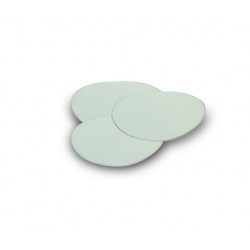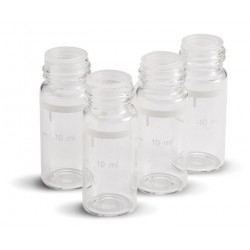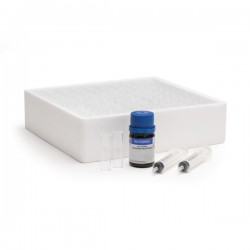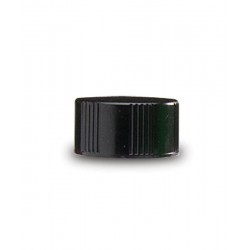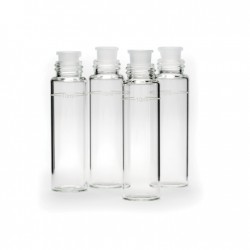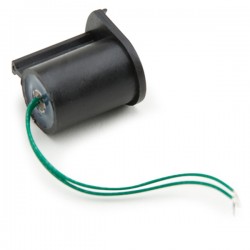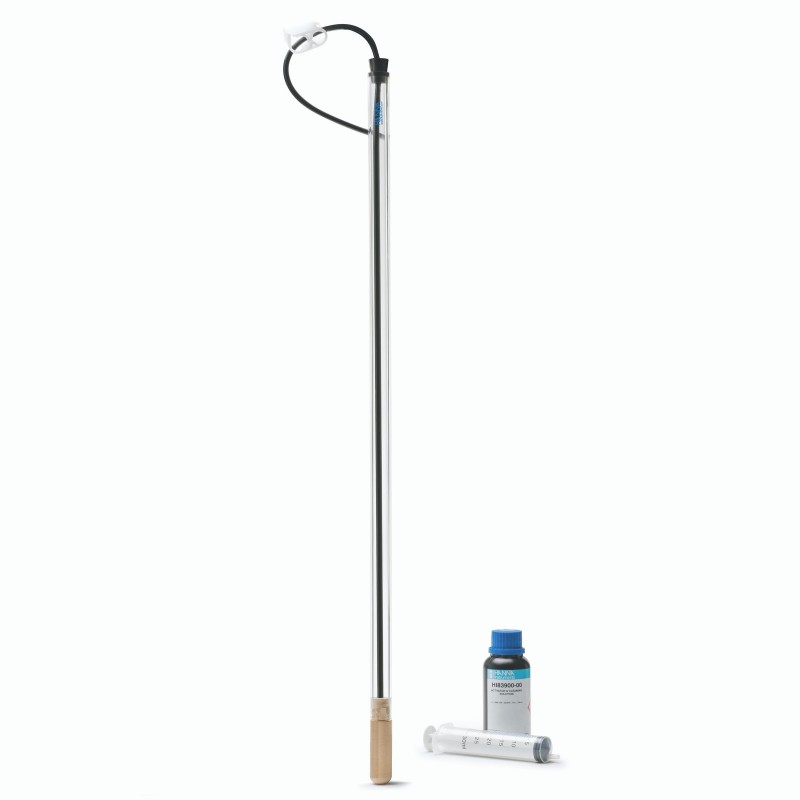






HI-83900-30 Suction Lysimeter for root level soil monitoring, 30cm
In Stock 7 Items available
HI-83900-30
30cm Suction Lysimeter for root level soil monitoring - the perfect companion for the HI-83325 multiparameter photometer with pH for plant nutrient analysis
.
The perfect companion to the HI-83325 multiparameter photometer with pH for plant nutrient analysis
The HI-83900 series lysimeter is an ideal tool for collecting soil solution samples and performing chemical analysis. The operator can easily monitor the levels of nutrients, such as ammonia, nitrate, phosphorus, potassium, sulphate, calcium, and magnesium. There are three lengths available - 30cm, 60cm and 90cm.
The ceramic tip of the lysimeter can be used in all types of soil. It is made of a material that does not react with the nutrients in the soil. Therefore, the soil solution collected is not affected by the chemical composition of the ceramic cap resulting in precise and reliable tests.
The HI-83900 allows the extraction of a solution from the soil by creating a vacuum inside the sampler tube. Typically, a vacuum of about -60 centibar should be drawn.
For better monitoring of soil solution composition throughout the entire crop growth period, at least two lysimeters should be installed in the root zone of a representative plant, one at the upper part and one in the lower part of the root zone.
For better measurement accuracy and repeatability, it is recommended to replicate installations in at least two more locations.
Plant nutrition
The three elements that are most needed by plants are nitrogen (N), phosphorus (P), and potassium (K).
Nitrogen is indispensable for the plant’s life and is a key factor in fertilisation, nitrogen allows the development of the vegetative growth of the plant; in particular, it contributes to lengthening of trunks and sprouts and increases the production of foliage and fruits. An excess of nitrogen weakens the plants structure creating an unbalanced relationship between the leaves and the stalks. In addition, the plant becomes less resistant to diseases.
Phosphorus is an important element in the composition of DNA and RNA, the regulators of the energetic exchange (ATP and ADP), as well as the reserve substances in seeds and bulbs. It contributes to the formation of buds, roots, blooming, and lignification. A lack of phosphorus results in stifling of plants, slow growth, production reduction, smaller fruits and a lower expansion of the roots.
Even though potassium is not a constituent of important compounds, it plays a remarkable role in many physiological activities in plants like the control of cellular turgor and the accumulation of carbohydrates. It increases the size of fruits, their flavour, as well as yielding a positive effect on the colour and fragrance of flowers. Potassium also makes plants more resistant to disease.
Read More
| Ordering information | All include capillary rubber tube with rubber cap and finger clamp, cleaning solution starter kit (120ml), 30ml syringe and instruction. | |
| HI-83900-30 | 30cm sampler tube ending with porous ceramic tip | |
| HI-83900-60 | 60cm sampler tube ending with porous ceramic tip | |
| HI-83900-90 | 90cm sampler tube ending with porous ceramic tip | |
| Accessories (buy separately) | HI-83900-25 Cleaning solution kit, 500ml |



